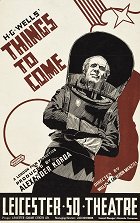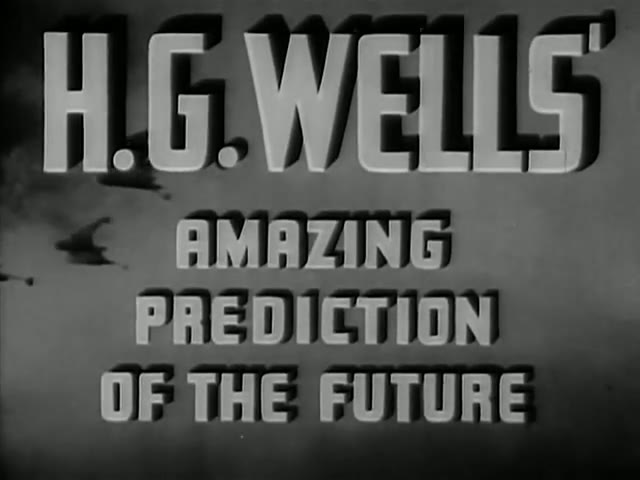Directed by:
William Cameron MenziesScreenplay:
H.G. WellsComposer:
Arthur BlissCast:
Raymond Massey, Edward Chapman, Ralph Richardson, Cedric Hardwicke, Derrick De Marney, Ann Todd, Patricia Hilliard, Terry-Thomas, George Sanders (more)VOD (2)
Plots(1)
It's Christmas 1940 and the people of Everytown, unprepared and ill-equipped, find themselves at war against an enemy who have been planning such a conflict for years. The land is devastated by the horrors of aerial bombardment as the war drags on for thirty years, causing a period of despair, with feudal tyrants ruling a downtrodden populace suffering famine and pestilence. Can the human race rise above its desperate circumstances and build a scientific utopia? A future history as scripted by the visionary writer H.G. Wells, Things to Come set a high benchmark for science fiction with its fantastic design, gigantic sets and spectacular special effects. Acknowledged as a landmark within the genre, Oscar-winning William Cameron Menzies' creation is an astounding vision of post-war desolation and utopian futurism. Starring Raymond Massey as John Cabal and his descendants and Ralph Richardson as The Boss, Things to Come showcases a gorgeous, instantly recognisable score by Arthur Bliss. (Network)
(more)Reviews (2)
A sci-fi drama, well-made for its time, in which both the political situation of the 1930s, which threatened war and the widely spread pacifist sentiment and technological optimism of that time are fully reflected. However, the film is brought down by its pathos and above all by its theatrical mannerism, with the main characters often slipping into mere declamation of slogans and noble truths. At certain moments, it would have been better suited to a large theater stage than a film camera. The most interesting and best part was the middle section, which dealt with a world destroyed by a world war. Despite limited financial and technical resources, this post-apocalyptic dystopia was portrayed more convincingly than many post-apocalyptic films of modern cinema. Overall impression: 55%.
()
A somewhat unconventional sci-fi that will probably be quite difficult for the contemporary viewer to endure. First and foremost, it is because there are no main characters here, but simply people and ideas that they represent. Secondly, it is because there are quite extensive time jumps here, as the film covers an entire century. Nevertheless, H. G. Wells shows how visionary he was and how he was able to contemplate about the world.
()

